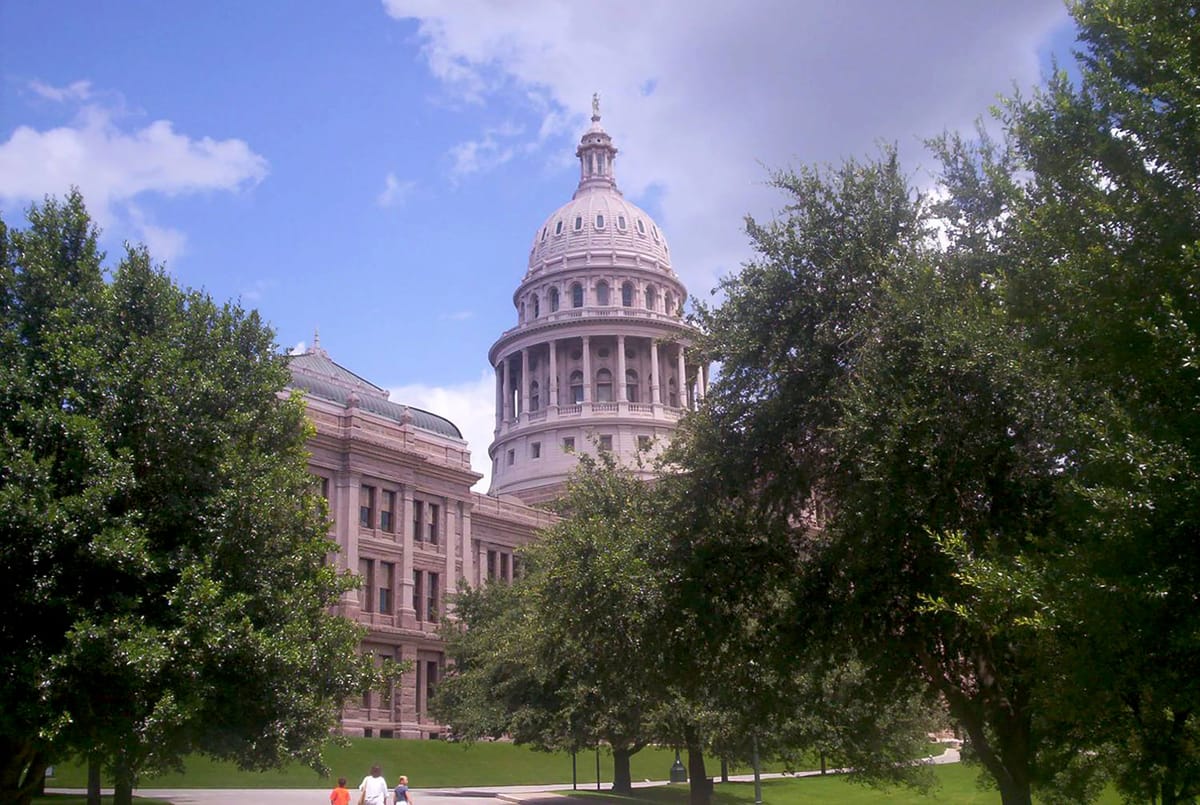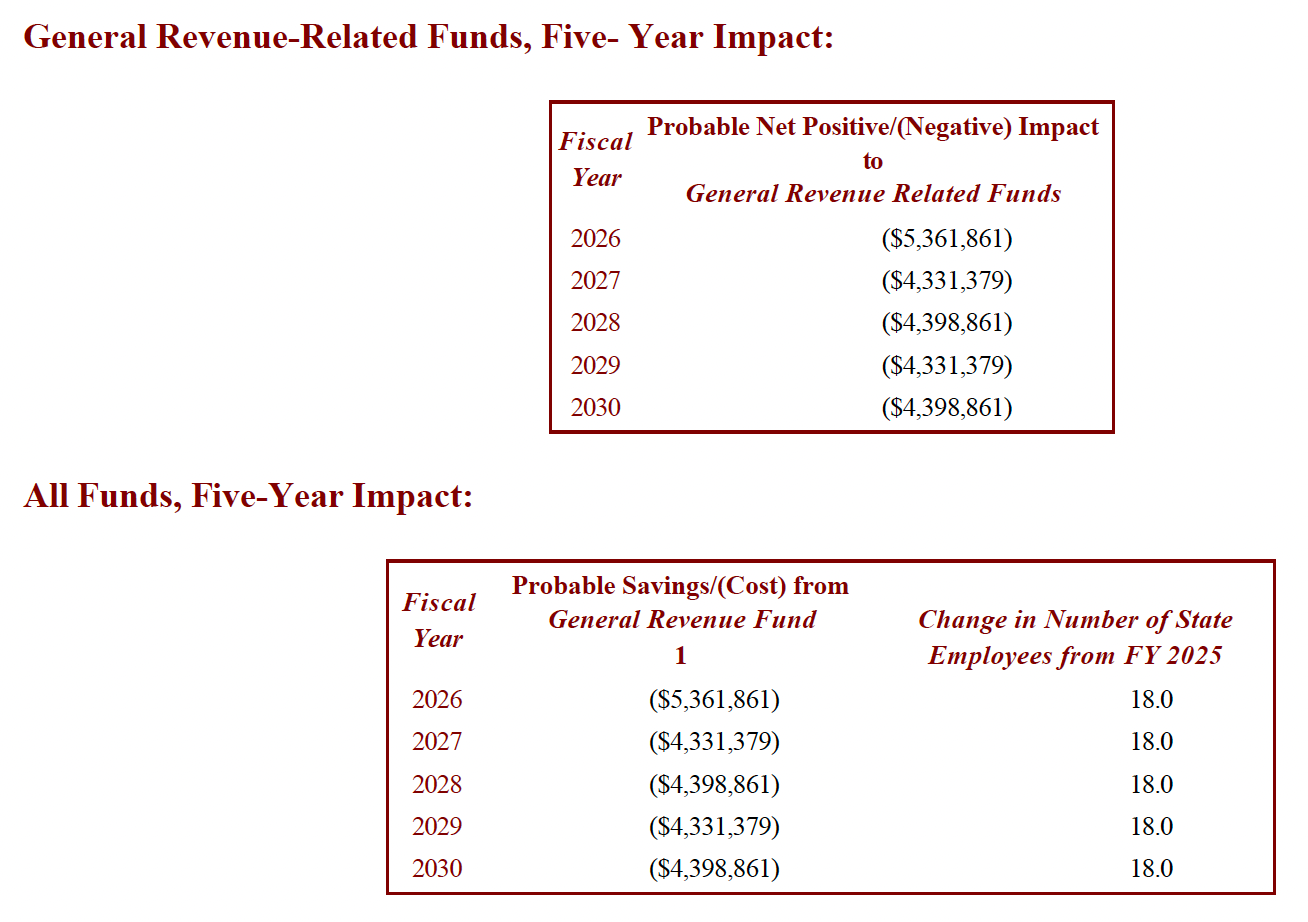Abbott signs ‘Texas DOGE’ into law at Texas Capitol; Harrison among bill's opposition

AUSTIN — Governor Greg Abbott has signed Senate Bill 14, also known as “Texas DOGE,” into law at the Texas Capitol in Austin. Passed during the 89th Regular Legislative Session, the law will empower the Texas government to “be more efficient and less intrusive in the daily lives of Texans,” according to a governor’s office media release.
“We are putting at the forefront of legislation the shaping, formation, and recalibration of government in the State of Texas to make it more responsive and more efficient,” Abbott said. “We in Texas will now have our own DOGE, known as the Texas Regulatory Efficiency Office. This law will slash regulations, put stricter standards on new regulations that could be costly to businesses, and put a check on the growth of the administrative state. This will make government more efficient and less costly, ensuring that Texas operates at the speed of business. I am proud of everything the Texas Senate and House were able to achieve to get this bill to my desk, which is now law.”
As an office, TREO will be established and located within the office of the governor. With the governor’s signing, it goes into effect Sept. 1, 2025. Its written reports will be biennial, with the first one due Dec. 1, 2026. In addition to the office’s staffing, the governor’s office will establish a non-compensated advisory panel (although expenses may be reimbursed).
The bill was met with some opposition, including from Ellis County’s state representative, Brian Harrison (R-Midlothian).
“The point of DOGE is to cut government, reduce spending, and shrink the bureaucracy,” Harrison said on the state House floor. “Unfortunately, this bill does the exact opposite.”
His remarks noted the bill has a fiscal note of $10 million, “expands the executive branch,” and “grows the bureaucracy.”

Harrison also criticized the bill as codifying "Chevron Deference" into Texas statute. (Editor’s note: The Chevron doctrine, established in 1984 and that said courts should defer to a regulatory agency’s rule interpretation, was overturned by the U.S. Supreme Court in 2024).
“This bill actually puts Texas to the left of the federal government when it comes to issues of regulatory reform,” Harrison said.
Watch Harrison’s floor comments here:
https://x.com/brianeharrison/status/1909665339430084729
Abbott was joined at the bill signing by Lt. Gov. Dan Patrick, state House Speaker Dustin Burrows, state Sen. Phil King, state Rep. Giovanni Capriglione, National Federation of Independent Business Texas state director Jeff Burdett, and other members of the Texas Legislature and business leaders.
Watch the Governor's full bill signing here.
“Texas DOGE will ensure the Texas Miracle continues long into the 21st century,” Patrick said. “Texans understand that by cutting red tape, more money stays in the pocket of taxpayers. Our conservative approach to regulation will keep Texans prosperous and our state the best place to do business in America and across the globe.”
“A major theme of this session is government efficiency, and today the state is delivering on its promise to cut red tape and empower Texans with greater oversight of their government,” Burrows said. “As the first bill signed by Gov. Abbott into law this session, the Regulatory Reform and Efficiency Act brings our state into the 21st century in terms of government rulemaking and will strengthen economic opportunity. Thank you to Gov. Abbott, Lt. Gov. Patrick, chairman Capriglione, Sen. King, and everyone who has worked to ensure Texas remains the best state in the nation for business and innovation.”
Statements from the bill's authors/sponsors and other interested parties were also included in the governor's media release.
“Senate Bill 14 was crafted with hard-working Texans in mind,” King said. “Many of our state rules and regulations are outdated and unnecessarily burdensome, creating barriers to continued economic growth. With this legislation, we can dramatically improve our regulatory system and build a stronger Texas for the long term.”
“The days of wasteful spending and government bloat have officially been DOGE’d. With the signing of Senate Bill 14, we are increasing government efficiency and saving taxpayers millions,” said Capriglione. “I'm thankful to Sen. Phil King for working with me in this effort and to Gov. Abbott for his leadership. Together, we're leading the charge in creating a smarter, leaner government.”
“Gov. Abbott’s signing of Senate Bill 14 marks a historic step for Texas small businesses, creating the Texas Regulatory Efficiency Office and building on the Small Business Freedom Council’s recommendations to reduce regulations, taxes, and workforce barriers,” said Burdett. “This legislation sets the stage for what could be the most impactful session for small businesses in Texas history.”
“As co-chair of the Governor’s Small Business Freedom Council, I applaud the signing of Senate Bill 14 to create the Texas Regulatory Efficiency Office,” said Texas Association of Business President and CEO Glenn Hamer. “This new office delivers on a core recommendation from the Freedom Council’s report: eliminate duplicative regulations, modernize outdated processes, and reduce the burdens that hold back small business growth. The Texas DOGE effort is a model for the nation. Texas is already the best state for business – but to stay on top, we must continuously improve how government works for entrepreneurs. This legislation reflects Gov. Abbott’s commitment to making government move at the speed of business, and we enthusiastically support his vision. I want to thank chairman King and chairman Capriglione for their leadership on this important initiative. Senate Bill 14 is a win for regulatory reform, a win for small businesses, and a win for Texas.”
SB14 passed the Senate with a vote of 26-5.
SB14 passed the House with a vote of 97 yeas, 51 nays, and one present, not voting.
Written by Jo Ann Livingston/ITKE.


